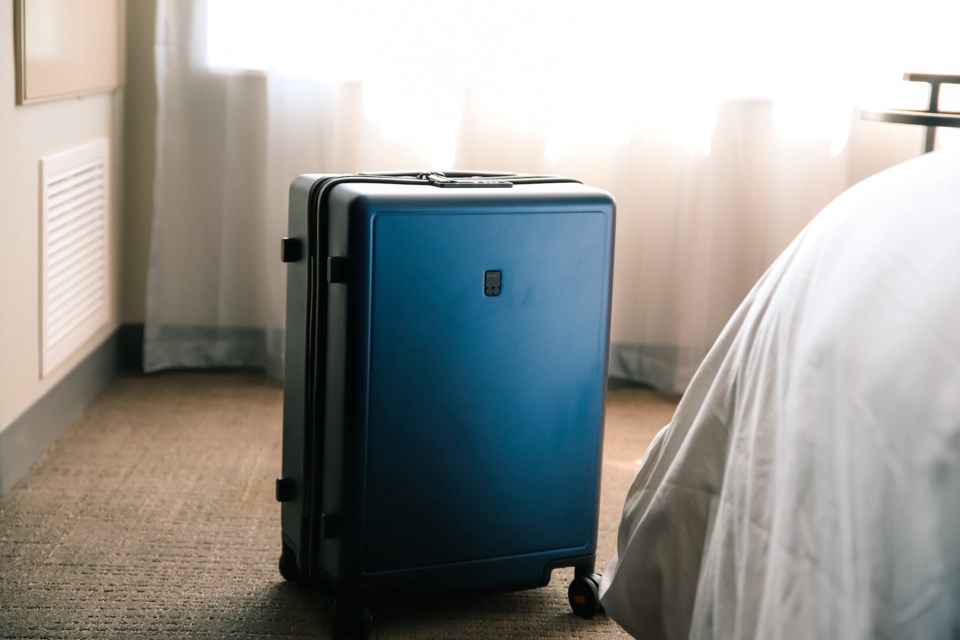The District of 麻豆社国产is reducing some fees in its short-term-rental licensing regulations, which govern Airbnb-type vacation rentals.
On Feb. 14, , and council voted unanimously in favour of making several changes recommended by staff.
About two years ago, the District implemented a vacation rental policy that would allow people to rent out their primary residence for Airbnb-type accommodations if they took out a business permit. It would allow them to rent out a room in their home, or to rent the entire home, if they are away.
There are stipulations in the rules that are intended to preserve the town’s long-term rental stock.
Generally speaking, residents are barred from putting secondary suites or carriage homes on this market. The caveat to this is that the District grants 30 temporary use permits that allow select residents to be exceptions to this rule.
Residents are also banned from renting out non-principal homes, such as investment properties and vacation homes.
During the Tuesday meeting, staff outlined some of the findings about the program’s results.
According to a staff report, there was a significant decline in short-term rentals following late 2020, after the vacation rental regulations came into effect, dropping to 220 units in the first quarter of 2021 after being at 380 at the end of 2020.
However, listings are starting to grow again, jumping to 193 this past December, up from
133 units in the first quarter of 2022.
It’s estimated that short-term rentals provide about 30% of the housing for tourists and visitors.
However, while rules have been put in place, that doesn’t mean people are always following them.
Staff estimated that only 43% of short-term-rental units were compliant with municipal regulations in 2021, and 49% in 2022.
With respect to whether the regulations achieved the goal of preserving the town’s long-term rental stock, staff cited a survey from an agency run by a former Quest University professor.
The survey polled operators of 57 units and found that 16% of former STR units are now being rented long-term, and 12% have been sold. That poll estimates that given the survey margin of error, this suggests that between 22 and 67 of the total 280 vacation rental units have since become long-term rental inventory.
Short-term rental operators also commented that fees brought in by the District’s vacation rental regulations — a business licence fee, utility fees and the temporary use permit fee — were all too high.
Staff recommended keeping the current business licence fee structure and rates for both the principal residence and the TUP licence.
For the principal residence, the monthly fee is $300 to rent out the whole home or $50 to rent out a room. The annual fee for this would be $900 and $150, respectively.
For the temporary use permit, this would be an annual $3,000 fee.
However, they suggested some adjustments be made.
One change was the recommended removal or reduction of additional utility fees for principal, short-term rental licences.
Currently, the municipality charges an additional utility fee for people hosting short-term rentals on their property.
As an example, the base utility rate for a mid-size dwelling is $1,105 per year. For a three-bedroom dwelling, the additional annual short-term rental utility charge is $1,665. This adds up to a total of $2,770.
Staff also recommend that the District allow for prorating business licence fees for applications received after Aug. 1 of each year. Officials will also explore adjusting this date.
Another highlight is the recommendation to allow TUPs to last up to three years before renewal. They’re currently good for two years. Staff are also calling for an open-intake style of applications that would allow people to apply year-round.
Council voted unanimously in support of these recommendations.
“Yes to dropping the utility fee,” said Coun. John French. “Also, yes to the rolling application window. I think that makes total sense. And along with prorating the fees. Yes to the 30-unit [TUP] cap, and I’m not afraid to take a heavy hammer to those who aren’t compliant … One of my focuses was around commercialization of our neighbourhoods. And short-term rentals does that, and if we allow those who are non-compliant, to be non-compliant long term, that’s an issue and a concern for me.”
Coun. Jenna Stoner said she supported the rolling application window.
“I think we had to put that stage application window in place because we thought that there might be a swarm of applications,” said Stoner. “Now that we know that that’s not the case, I think a rolling application makes sense, and with that, the prorated fees.”
She said a combination of addressing the utility fees, and having the prorated licence fees would hopefully ease concerns about the fee structure.
Mayor Armand Hurford noted the impact that short-term rentals have on the community.
“I’d like to acknowledge that short-term rentals are not the solution to either the community’s housing needs nor tourism accommodations, but quite clearly affects both of these aspects,” said Hurford. “With that in mind, I’m of the opinion continuing the refinement of our policies in this area is absolutely worthwhile.”

